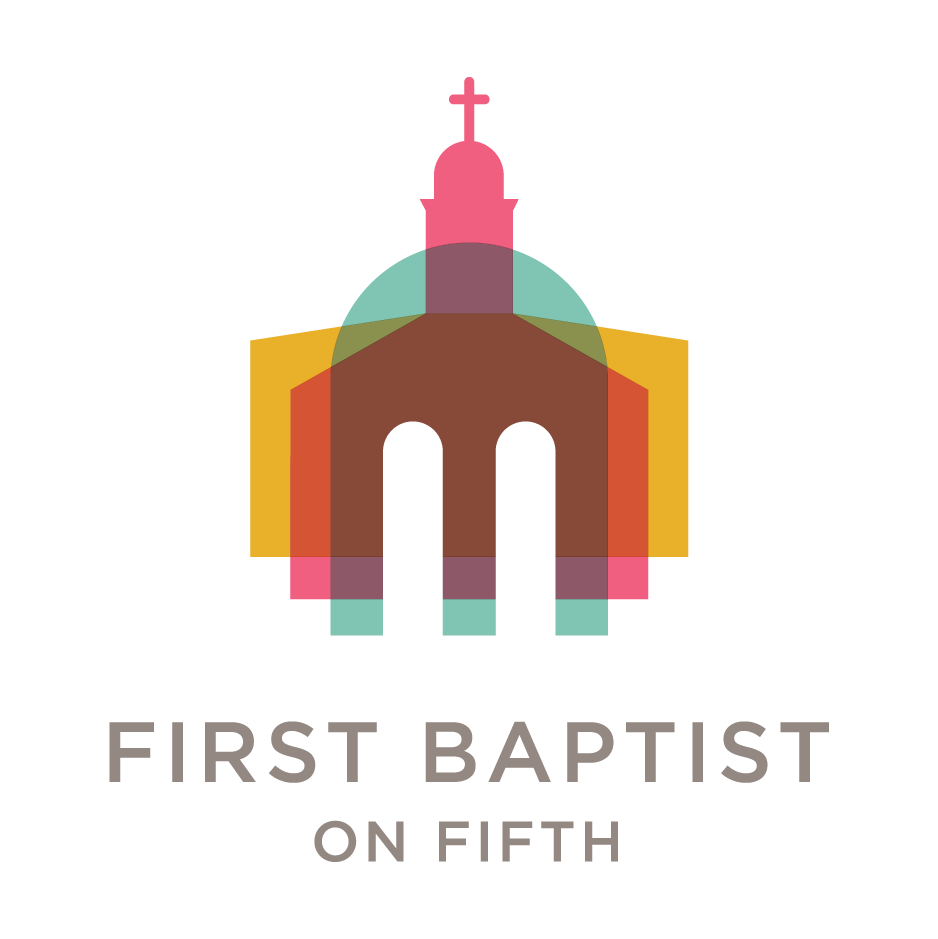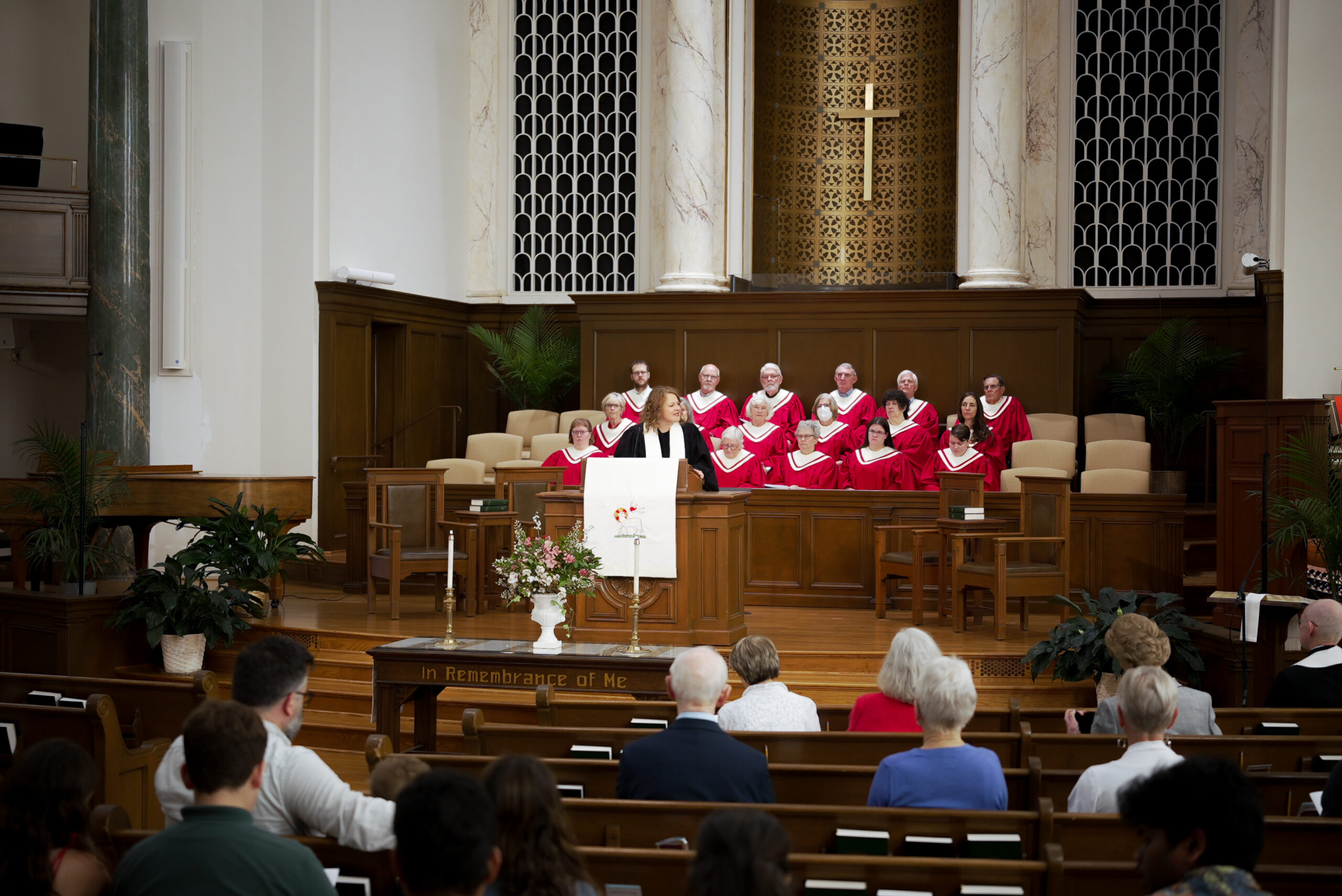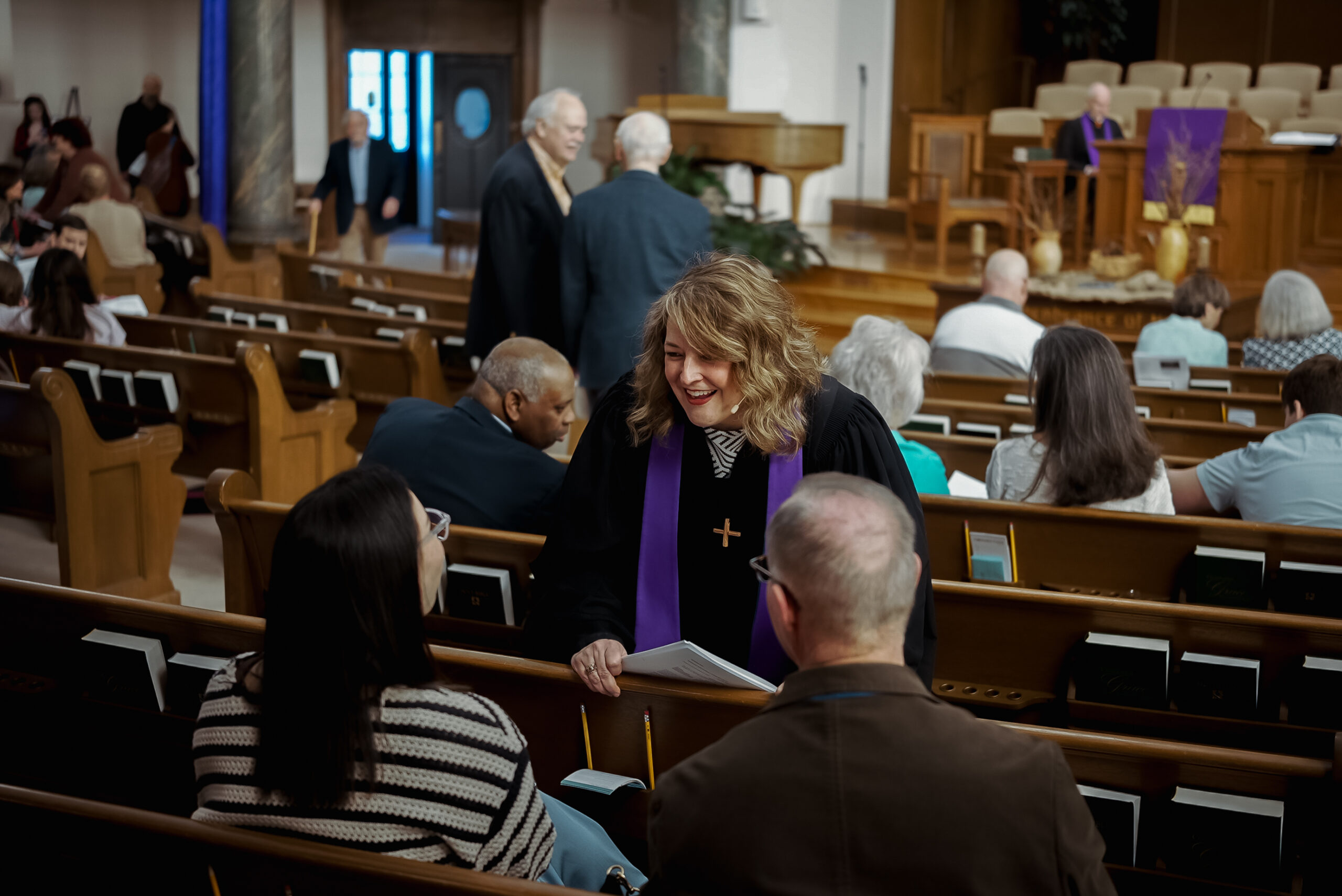Church, good morning!
Today, in our Then and Now sermon series exploring the Book of Genesis, we turn to Genesis chapter 22. Here, we encounter a familiar story, which is rich with imagery and meaning, but which is also notoriously challenging and complex. There is much in the text to explore, but its intent is simply not very clear. In fact, one of the commentaries I read in preparaDon for this morning described the text from our scripture lesson as being “among the best known and theologically most demanding in the Abraham tradition.” With that in mind, my sermon will work to make a bit of sense of this difficult passage of scripture and ask some questions about what we might learn from Abraham and Isaac’s ancient story for our own Time.
In Genesis 22, we, of course, meet Abraham and Isaac in a tale which reaches directly to the heart of maLers concerning the function of discernment, the shape of robust faith, and the promise of God’s provision. Even so, this story can be hard to read. If you recall, it begins by revealing that Abraham hears a voice the text calls God’s voice telling him to take his son Isaac on a hike up a mountain, to build an altar there, to wield a knife, and to sacrifice the son he loves. That’s it. That’s the command. Could this really be? In my reading of this story, it would seem that Abraham, the great father of our faith, has come to the conclusion that he must kill his son because he’s sure that God has told him to do it. I don’t know about you, but that’s tough for me to sit with.
Growing up, I often heard sermons about this passage, which suggested this story was meant to illustrate that we should be prepared to give up anything, even the thing we most value, to demonstrate our great faith and prove ourselves to God. I also occasionally heard this passage get bandied about when the church budget was not quite adding up. These sermons would suggest that members give sacrificially of their finances because their monetary contribuDons could only pale in comparison to all that Abraham was willing to give up in being obedient to God. Even if unintentionally, these sermons communicated that if we just prayed a little harder, trusted a little more, and gave more sacrificially, our demonstrated faith might just keep God happy with us. For sure, we ought to give our money and live with grateful hearts, always aware of our blessings. However, I’m not convinced we can take this terrifying, traumatic story of one man’s baffling discernment of the voice of God and make Abraham out to be one worth universally emulating here. We tend to turn Abraham into the hero of this story and suggest that he is an exemplar of good, faithful living. But that would seem to me to be a dangerous posiDon to take. Looking across Abraham’s life as it’s detailed in the biblical narrative, we can’t deny that he seemed to be a rather entitled guy. For much of his life, Abraham has things handed to him on a silver platter, until he hears the voice of God call him from the safety of his family’s community to adventures in unfamiliar lands. But along the way, we can begin to sense a pattern in Abraham’s behavior. For example, there’s the story of Abraham’s encounter with the Pharaoh wherein, thinking he was about to get in trouble, Abraham pretends his wife, Sarah, is his sister and attempts to bribe the Pharaoh using Sarah as the bribe. Then, there’s the Dme Abraham, to perpetuate his family lineage, impregnates Hagar, a slave, and produces an heir in Ishmael. In both of these stories, Abraham comes across less as the victorious hero we often want him to be, and more so as one who in fact behaves quite irresponsibly and who often makes selfish decisions. His own desires and comfort would seem to be what most consistently drive him.
Now, it may seem like I’m giving Abraham a really hard time, but here’s the thing: he’s a lot like us. He’s a human being who walks about with a lot of entitlement and privilege. And navigating his life this way means that he, like too many people of faith, finds himself in a paLern of readily minimizing the suffering of others and elevating his own opinions and understandings of God’s voice over and above others. This is what entitlement and privilege do to us—they make us feel self righteous while we encroach upon others and their God-given autonomy and rights. We can easily begin to believe our own voice is the voice of God and begin speaking on God’s behalf. When this happens, suddenly we, like Abraham, find ourselves making decisions that promote our own interests to the detriment of others, and which do not spur us on toward goodness and justice and life—the very stuff of God.
In reading this story, I find myself wondering which altars of Abraham’s own making he was willing to sacrifice Isaac on, and which knife he might have concluded was appropriate for the violent task at hand. Perhaps Abraham was willing to sacrifice Isaac on an altar of holiness or heroism, strategy or self-regard. And maybe it was a knife fashioned out of Abraham’s own inner confusion or self-loathing or distress which was wielded against Isaac. What was it that drove Abraham to be convinced God was demanding that he do something so terrible as kill his own son? I’m not sure, but I struggle to believe it was God. It couldn’t have been God’s voice that spoke to Abraham because God’s voice can only ever lead us toward jusDce and hope, restoration and life.
And this is more or less how the story from this week’s scripture lesson ends, with God’s voice breaking in to correct what would have been a tragic conclusion to the story. You see, Abraham narrowly avoids disaster by listening attentively for God’s direction and acknowledging finally that God will provide. So, this story is not about Abraham being willing to sacrifice what was dearest to him. Instead, it’s about God’s provision and relentless interest in calling us ever toward life, saving us from ourselves. As with the ram in today’s story, which is sacrificed instead of Isaac in a last-minute switch, God is fully able and endlessly willing to provide all that we need to choose life again and again.
Ancient rabbinic literature offers the idea that the ram that God provided had been present there at the pinnacle of Mount Moriah to be sacrificed in Isaac’s place since the very first days of creaDon. In this interpretaDon of the story, God’s provision for Abraham had always been part of the created order, the world’s very design. Such is the case for you and me—all we need has always been here. We must simply practice discerning the voice of God and hearing it above the cacophony of other voices which shout at us, perhaps none of which is louder than our own.
So, no, this is not a story about the kind of religious commitment we should mirror. In fact, if anything, it challenges us not to adopt a kind of religious fanaticism that would convince us we ought to commit acts of violence in God’s name. The late Rachel Held Evans spoke to this point when, reflecting on this story and its meaning, she wrote, “Maybe the real test isn’t in whether you drive the knife through the heart. Maybe the real test is in whether you refuse.”
And this story is not an appropriate stewardship passage either. What is then? What do we do with this story? Well, I like to imagine that this is a story intended to remind us that we can too often be a self-serving people. In this, we often confuse the voice of God with other voices, most often our own, which tell us to behave in ways that fly in the face of who we understand ourselves to be and what we claim to value. We often contort ourselves until we can justIfy almost any decision as being one which honors God. Too many people of faith are lettng their raised knife fall, and not enough are finding themselves attentive to God’s provision and refusing to enact violence. We don’t have to look hard at our culture to see where this rings true—in violent insurrecDons and regressive Supreme Court rulings and ill-informed educaDon policy. Who are we sacrificing on the altar? Are we sacrificing children on the altar of gun worship? Are we sacrificing people of color on the altar of white supremacy? I’m afraid so.
If we’re honest, this shows up in your life and mine too. Quite often, I think we bend ourselves to narratives and visions which we’ve convinced ourselves honor God, but which inflict great harm. And if you’re thinking, “Now Zack, I’m not sure that’s true.” I’d ask you to consider the ways in which too many people of faith have simply gotten good at masking and covering up the harm we cause with confusing religious language and Sunday smiles. In the end, being “church nice” is not nice at all, and harm is harm—especially when we use our religious identity as an excuse to prioritize our own gratification and success at the expense of others we claim to love.
When we allow ourselves to become shaped by our own self interested understandings of God’s will, we sacrifice our integrity and self-respect on the altar, and we place our relaTIonships and communiTIes in jeopardy. What terrible tragedies, these decisions we make.
But now, the good news—perhaps that’s what you’ve been waiTIng for! In today’s scripture lesson, God bails Abraham out again. He saves him from himself and from calamity of his own making. Abraham came quite close to making a decision that he could have never made right, but God redirected him toward what he knew to be good and true deep inside. Friends, the good news is that God provides for you and me in this way too, ever challenging us to listen beLer to all that speaks life to us—poinTIng us toward what we value at our core. By focusing on these things and the very voice of God, we might just find ourselves less often justifying our own bad behavior and attributing our own opinions to the Divine.
I’ve spent several weeks pondering this story of Abraham and Isaac, with some level of angst I might add, and it’s left me wondering about our firmest convictions and all the things that we are just so sure of. You see, each of us has discerned something that we’ve attributed to God’s voice or leading. This that we’ve heard or intuited is guiding us up the mountains of our own lives. Perhaps, like Abraham, we’ve gathered the tools we think we’ll need for the journey, and we’ve become quite sure of what we think must transpire by our story’s conclusion. We can begin to feel pretty sure of our situations. But, like Abraham, will we be able to discern when God is speaking louder than our own voice? Will we be willing to acknowledge that the path we have been following never actually had life as its trajectory? Will we able to reevaluate when we finally hear the voice of God and it’s calling us to something else? Will we be able to perceive and receive the provision that has always been ours before we make decisions we’ll regret?
These are questions I’m left with, and I think they’re questions worth asking. In the end, perhaps this story begs us to be a bit more discerning about which voices we hear and what we ultimately attribute to God. And maybe it’s also about helping us understand how to adopt postures of repentance, which allow us to experience the grace needed to change our minds and live our lives attuned to what we know to be true—that the voice of God will always lead us on paths away from death and toward life instead. For this, Church, is the Jesus Way. Amen.





